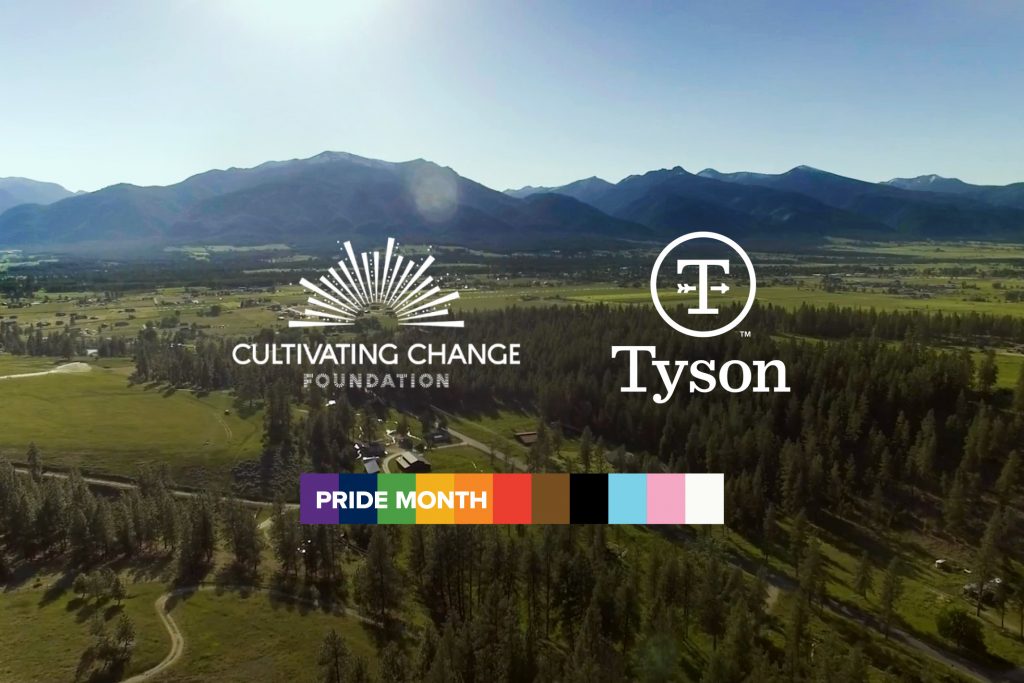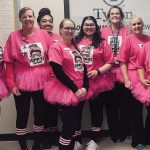Grant Ermis recalls the first meeting, a gathering of 33 gay men who shared a common bond: they all worked in agriculture, many of them having participated in the National Future Farmers of America Organization (FFA).They met in Atlanta in August of 2015 to begin a conversation about the presence and significance of lesbian, gay, bisexual, transgender, and queer individuals in the agriculture industry.
“We were a group of individuals who shared a passion for the agriculture industry, operating at the intersection of ag and culture,” Ermis said, “and we wanted to make sure we don’t lose people vital to the industry at that junction.”
Although the 2015 gathering focused primarily on gay men, when the Cultivating Change Foundation was established the next year, its mission was broader: To value and elevate all LGBTQ agriculturists through advocacy, education, and community. Each year the Foundation participates in industry events, coordinates regional conferences, and holds an annual summit, creating spaces where people can learn, collaborate, and address the problems facing the agriculture industry in the arena of sexual and gender identities and expressions. Tyson Foods has sponsored the Foundation and participated in its annual summit since 2017.
“Tyson Foods is constantly at the table with us, having the conversations, showing up to events as advocates, and bringing in employees to the Foundation to give industry perspectives,” said Ermis, a founding board member. “We say we have two kinds of supporters – philanthropic and thought. Tyson comes to the table for both.”
LGBTQ Community and Rural America
The Movement Advancement Project estimates 15-20% of the total U.S. LGBTQ population live in rural communities. Their 2019 study, Where We Call Home: LGBT People in Rural America, focuses on how rural life amplifies the impact of acceptance and rejection. The study shows that while rural living offers vibrant and tight-knit community, family life, and connections to the land, LGBTQ people are also challenged with increased visibility, a smaller support structure, and greater vulnerability to discrimination.
“There was a time I thought the best thing for me was to leave agriculture and rural America so I could ‘be me’,” said J.J. Jones, Cultivating Change’s Board treasurer. “Fortunately for me, my family and friends were and continue to be exceptionally supportive. However, I know this is not the same for every LGBTQ young person.”
It’s these young people Cultivating Change seeks to connect, providing a global network of industry professionals and leaders and bridging the generational gap. It’s a purpose Brandon Braaten and Josh Perkins say is essential to strengthening and sustaining LGBTQ agriculturists.
“If I would have been able to experience Cultivating Change at a younger age, it probably would have changed the trajectory of my life,” Perkins said. Perkins grew up on a cattle ranch and has worked in agricultural education. His husband, Brandon, also has a history in agriculture education and is a professional sheep shearer.
Many LGBTQ youths, Braaten noted, feel that they can only find acceptance in cities and urban areas, driving LGBTQ agriculturists out of the industry and communities they love. “[The Foundation] really sheds light on the importance of us, in our location, being authentic to who we are and being true to who we are,” Braaten said. It is their hope that, through Cultivating Change, more young LGBTQ agriculturists will find a network empowering them to propel the industry and rural America forward.
Cultivating Enduring Change
“While many in the agriculture and rural America space are early adopters when it comes to technologies that enhance environmental stewardship or animal care,” Board treasurer J.J. Jones said, “we can be slow to adapt to a changing world on social issues – often issues that are outside our comfort zone.”
Overcoming these challenges and creating lasting change, according to Ermis, really comes down to resources – resources in the shape of research and study, of individuals and role models being visible and authentically talking about their story, and of communities and companies recognizing their influence.
Having the support of Tyson Foods, says Jones, helps create greater avenues for accessibility and change.
“Tyson Foods’ leadership in this space fills me with joy, gratitude, and confidence. Joy to see a leading voice in the food, agriculture, and rural America space using their influence to build awareness and affect positive change. Gratitude that Tyson Foods believes in the mission of the Foundation and is willing to invest its time and resources in our work. And, confidence that we are on the right track with our work and vision for the future.”
But Ermis and Jones agree: the greatest hope for Cultivating Change is that one day it won’t be needed at all.
“My hope is that our work affects change in such a way that there is no need for the foundation,” Jones said. “If all can be their authentic selves, our mission is accomplished.”





